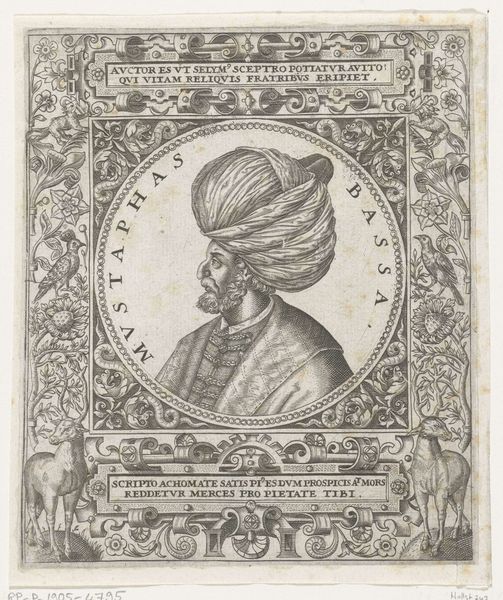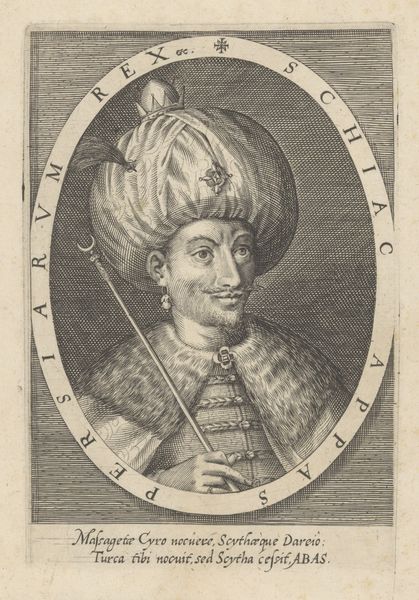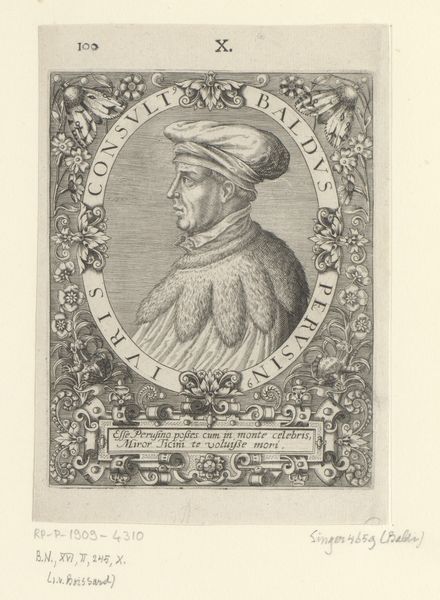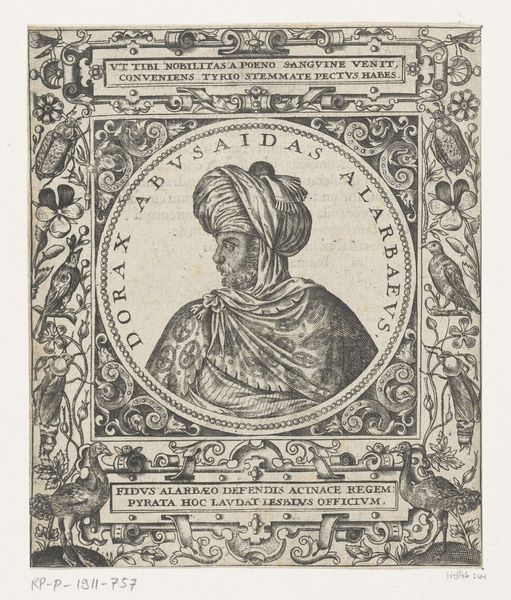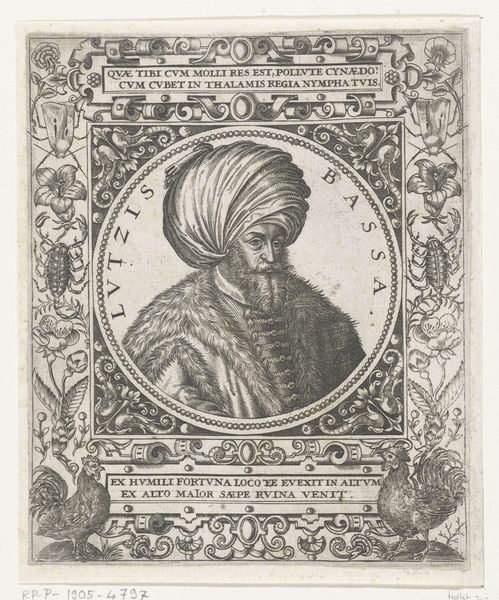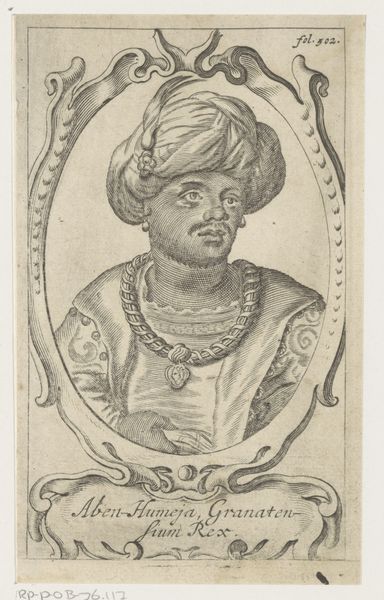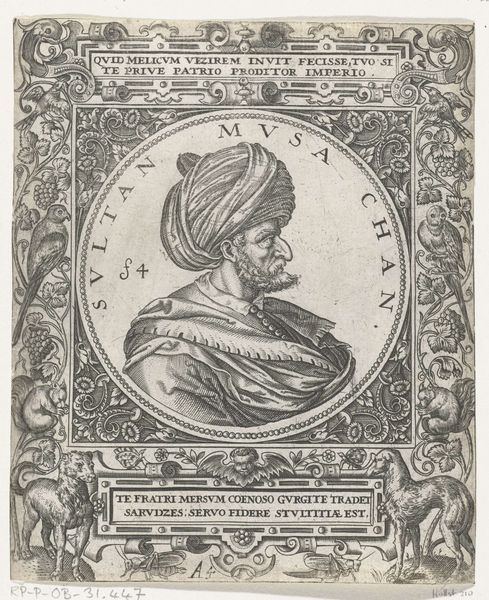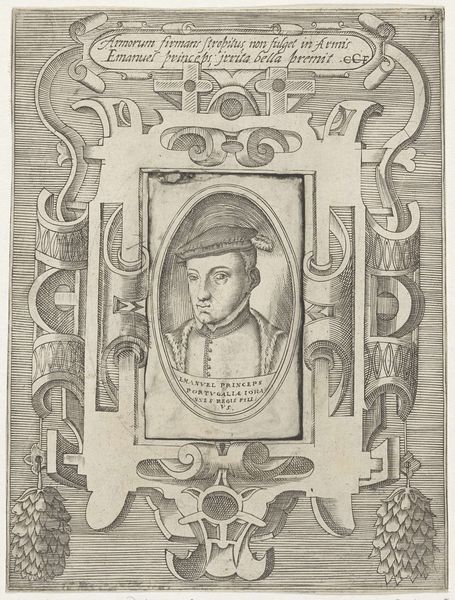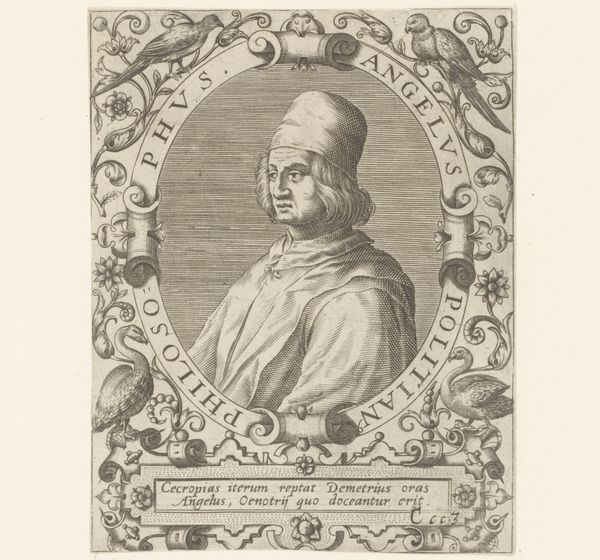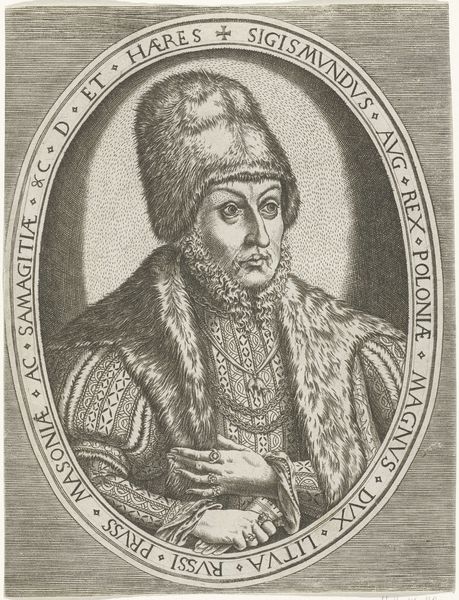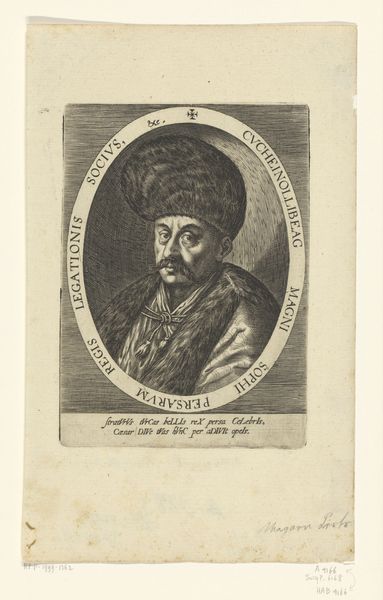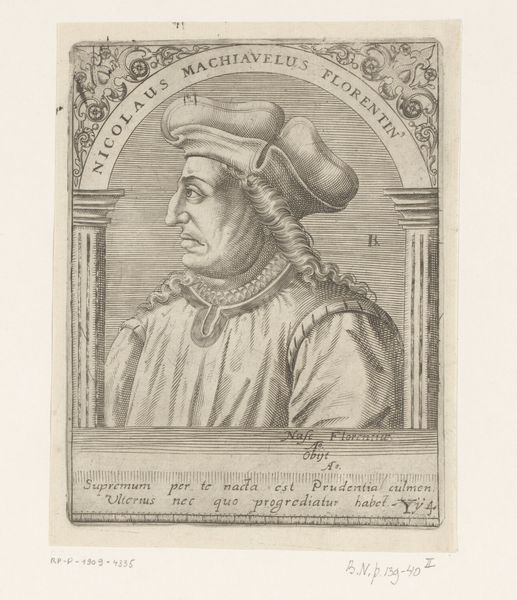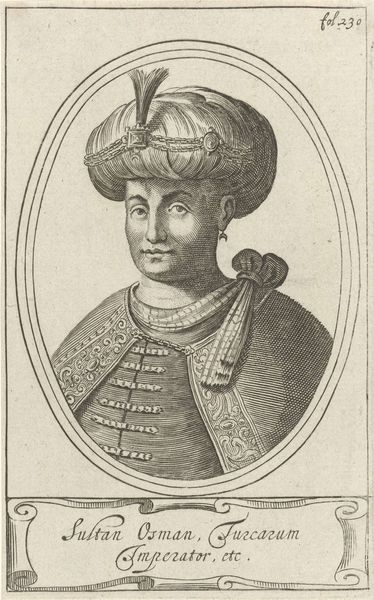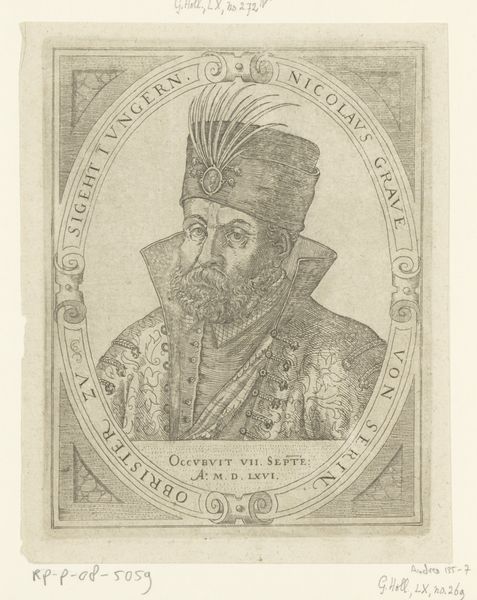
engraving
#
portrait
#
11_renaissance
#
islamic-art
#
history-painting
#
engraving
Dimensions: height 152 mm, width 125 mm
Copyright: Rijks Museum: Open Domain
Editor: This is a fascinating engraving from 1596 by Theodor de Bry, titled "Portret van de sultan Muchemetes Bayazid," which translates to "Portrait of Sultan Mehmed Bayezid." I'm immediately drawn to the Sultan's striking turban and the detailed decorative border around the portrait. What aspects of this work stand out to you the most? Curator: Ah, yes! It is intriguing, isn't it? The gaze…so direct, piercing almost. Imagine yourself, centuries removed, staring back at him, and he at you! Beyond the masterful detail achieved through the engraving technique – note the fineness of those lines defining his beard! – consider the historical context. This was a period of intense cultural exchange, and sometimes conflict, between Europe and the Ottoman Empire. Editor: So, how does this image participate in that cultural exchange? Curator: I see it as a carefully constructed representation. De Bry, a Northern European artist, is interpreting a powerful Eastern ruler for a Western audience. Notice anything about the framing? That ornate border almost feels like a stage, doesn't it? He is exoticized, stylized, but also granted a certain gravitas, don't you think? What does it tell us about how Europeans viewed Ottoman leaders at the time? Does this image confirm or challenge stereotypes? It gives me chills. Editor: That makes me consider the intention of the artist as well. I didn't notice the implicit message before about creating a staged persona for the audience, versus simply capturing a likeness. Curator: Exactly. It's a window into a complex relationship, rendered with remarkable artistry. Editor: Definitely something to contemplate! Thanks for guiding me.
Comments
No comments
Be the first to comment and join the conversation on the ultimate creative platform.
